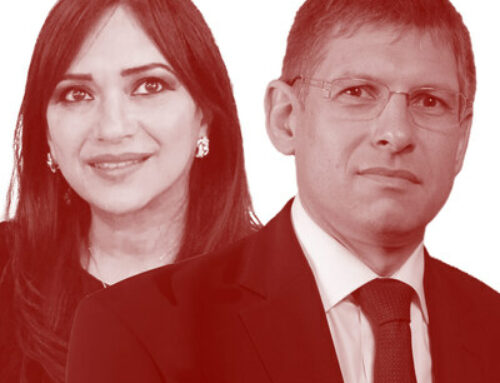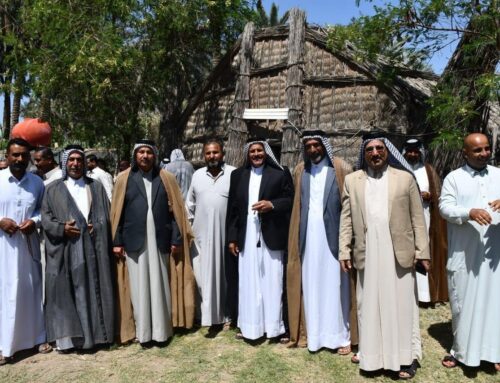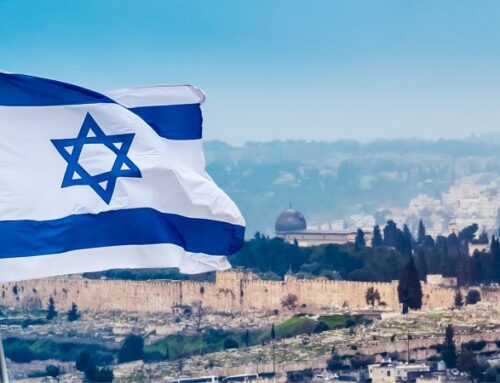Interview for the Algerian newspaper Horizons
Published on April 1, 2023
Fabrice Balanche, specialist in Syria, analyzes the changes observed in the position of certain Arab countries vis-à-vis Syria. According to him, the earthquake that struck this country and Turkey in February 2023 accelerated the rapprochement with Damascus. He also believes that “Arab countries can have more weight on the international scene thanks to the rivalry between the Western bloc and the Eurasian bloc”.
Isolated since 2011, Syria is gradually returning to Arab rule. What do you think are the reasons for this change?
First of all, we must remember that Bashar al-Assad won the war. The Syrian opposition can always say that he will not win the peace and that he is sitting on a field of ruin. The reality is there. Admittedly, it only controls 2/3 of the territory, but this is “useful” Syria: the large metropolises where most of the infrastructure is located. The Arab countries therefore make the diagnosis that Bashar al-Assad will sooner or later regain full sovereignty over the country or at least that his regime is no longer threatened. This is the first reason: we always follow the winner.
Internationally, over the past ten years, Russia and China have established themselves as leading players in the Middle East, but also in the Maghreb. Recently, China succeeded in bringing Iran and Saudi Arabia closer together. Russia and the oil-producing Gulf countries share common interests in the oil market that run counter to those of Washington. I could multiply the examples of the rise of the “Eurasian” axis (China-Russia) in the Arab world. Western influence is shrinking in the Arab world and the United States is finding it increasingly difficult to block rapprochement with Damascus. The attitude of the UAE is extremely revealing on this subject: in 2018, Abu Dhabi reopened its embassy in Damascus and has constantly campaigned for its reintegration into the Arab League. However, the United States cannot condemn this attitude since at the same time, the UAE is the engine of the Abraham pact aimed at normalizing relations between the Arab world and Israel.
More and more Arab countries are approaching Damascus. How do you explain this reversal in the position of these capitals?
The earthquake that struck Syria and Turkey in February 2023 accelerated the rapprochement with Damascus. The King of Jordan and the President of Egypt called the Syrian President to offer him their support, a first since 2012. The UAE organized an airlift of humanitarian aid to Syria without worrying about international sanctions. Saudi Arabia also hesitated 48 hours before participating in the sending of massive humanitarian aid, and its reversal is quite spectacular, because until now it has fiercely opposed any rapprochement. However, at the Munich Security Conference in mid-February 2023, the same Saudi minister had already expressed his desire to renew dialogue with Syria because the situation of the population in Syria and of refugees in neighboring countries was disastrous. This creates a risk of regional destabilization. The earthquake that devastated the North-West of Syria has only increased the descent into hell of the Syrian people.
Basharal-Assad’s so-called “earthquake” diplomacy works through this process of regional appeasement. Moreover, the earthquake is the best opportunity to get closer to Bashar al-Assad without losing face. Condolences are often moments of reconciliation between angry parents or hostile neighbors who are ultimately just waiting for an opportunity to settle the past.
Syria’s reintegration into the Arab League, from which it was suspended at the end of 2011, is a recurring subject. At the Algiers Summit, this possibility was abandoned. Do you think that thanks to the changes of recent days, his return could be recorded at the next summit?
At the end of April, after Eid El Fitr, the Saudi Foreign Minister, Faisal Ben Farhan, must go to Damascus to seal the reconciliation between the two countries and probably announce Syria’s participation in the Arab League Summit in Riyadh next May. The reintegration of Syria into the Arab League at the Algiers Summit was blocked, while many countries including Algeria were campaigning for it. Moreover, Bashar al-Assad did not insist on saying that this question should not be a cause for anger for this important summit.
On the Middle Eastern scene, we have been witnessing for a few weeks rapprochements which until recently seemed improbable, like what happened between Saudi Arabia and Iran. What is your reading?
Saudi Arabia’s concern for Syria comes in the context of reconciliation with Iran, achieved under the aegis of China. On March 10, the two countries thus planned to restore their diplomatic relations, and King Salman officially invited President Ibrahim Raïsi to visit Saudi Arabia. This conflict is at the heart of political maneuvering in the Middle East. China has excellent relations with the two regional powers which are its main trading partners in the Middle East. Saudi Arabia needs peace to build its futuristic projects in the desert. Iran must revive its economy after the fall 2022 protest, or risk seeing a new social explosion happen. Both countries consume Chinese and the infrastructures are also largely entrusted to Chinese companies. It is therefore essential for the good economic health of the Middle Kingdom that peace settles in the Middle East. It is also a huge diplomatic success for China which comes at the expense of American influence. I don’t think this can call into question the Quincy pact (dominant economic position against military protection), which has governed relations between Saudi Arabia and the United States since 1945, but it is a serious breach.
Can the agreement between the regional powers redistribute the cards in the region and give more weight to the Arab world? What will be its impact on ongoing conflicts?
The period of Western hegemony over the world that began with the disappearance of the USSR ended in the 2010s. I precisely think that the rescue of Bashar al-Assad by Russia is the symbol of the end of unilateralism. The return of Russia and the appearance of China on the international scene therefore allow Arab countries to take advantage of competition to emancipate themselves from Western and American influence in particular. This is the case today because we are in a period of transition between unilateralism and bipolarism. Because the anti-Western camp, which we can call “Eurasian” (China, Russia and Iran), is beginning to structure itself and the confrontation with the West will lead to the same process as during the Cold War with the vassalization of Third Party countries world. Albert Sauvy, the author of this concept, in a famous article in the Observer (ancestor of the Nouvel Observateur), published in 1952, entitled “Three worlds, one planet”, evokes the existence of two worlds, Western countries and of the communist bloc, between which a cold war is raging which could turn into an open conflict. This opposition denied the existence of a third world, all the underdeveloped countries, coveted by the two blocs.
It therefore seems to me that we are in the world in a period comparable to the 1950s which saw the appearance of the Non-Aligned movement and leaders like Nasser, champion of Arab nationalism.
Initially, the Arab countries can therefore have more weight on the international scene thanks to the rivalry between the Western bloc and the Eurasian bloc. The war in Ukraine is extremely revealing in this regard. The two blocs are looking for allies. Arab countries must therefore be extremely careful. They can manage to avoid the pitfalls, but for that they must build, individually but also collectively, real economic sovereignty and balanced strategic relations within the framework of the new West-Eurasian cold war.
Algeria is working to reunify Arab ranks and relaunch joint action. Do you think this path is the most appropriate to face the current challenges?
Yes, I think Algeria is right to continue down this path. But we are entering a phase at the global level where climate change will upset the traditional geopolitical parameters. Sovereign nations will be those that have both energy and food independence. This means that water resources will take on considerable importance in the construction of agricultural sovereignty. The Arab world has considerable financial means thanks to the revenue from hydrocarbons, but unfavorable geographical conditions in the context of global warming. This should be central in the reunification of the Arab ranks. This awareness would make it possible to overcome the political quarrels which will soon appear derisory in the face of the social upheavals linked to climate change which await the Arab world.
Interview conducted by Nadia Kerraz






